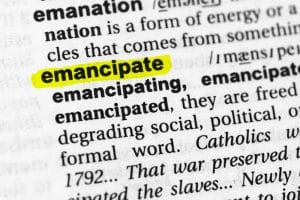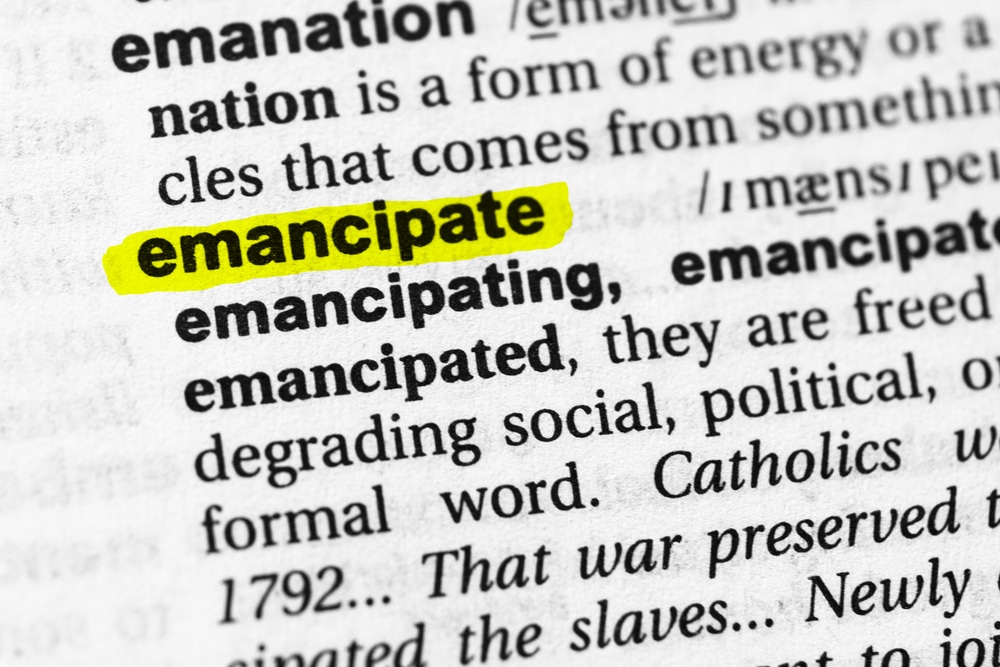Understanding Child Emancipation Laws and Court Procedures in New Jersey
Emancipation is a court order that frees a child from the custody, control, and support of a parent.
 If you have a child who lives in New Jersey that is becoming more independent and for whom you are paying or receiving child support, you’ll need to get familiar with New Jersey’s laws regarding emancipation. We’ll provide here a brief description of the pertinent laws, and we stand by to help you understand the issues more fully as they pertain to your child.
If you have a child who lives in New Jersey that is becoming more independent and for whom you are paying or receiving child support, you’ll need to get familiar with New Jersey’s laws regarding emancipation. We’ll provide here a brief description of the pertinent laws, and we stand by to help you understand the issues more fully as they pertain to your child.
It’s a given that New Jersey parents must pay the cost of maintaining the child until he or she is emancipated. “Emancipation” describes an event that shows the child has grown up enough and become independent enough to be outside the “sphere of influence” of his or her parents. When this happens, a parent cedes his or her custodial role and does not have an obligation to maintain that child financially.
Emancipation is a court order that frees a child from the custody, control, and support of a parent. In practical terms, the parent can no longer make decisions for him or her, and the child is no longer entitled to monetary maintenance by the parent.
Events that Emancipate a Child
New Jersey state law states a few circumstances that will accordingly cause the emancipation/liberation of a child.
- The child’s death
- His or her marriage
- The child enlisting in military service
Other circumstances could lead to the liberation of the child, but these aren’t automatic triggers:
- Relocating away from either parents’ home
- Getting a 35- or 40-hour-per-week job
- Giving birth or being pregnant
- Graduating from university, trade, or high school
When Does a Child Become Emancipated?
It always depends on the case and the unique circumstances of each child. In this state, there is no clear definition of what triggers emancipation. But there is the presumption that it will not happen while the child is still a minor. The age of the majority in this state is 18. Having the 18th birthday does institute a prima facie confirmation of emancipation. But it is not indisputable. The child being in high school is the most common way to disprove that confirmation. And there are other ways to disprove it.
Whether or not a child can be legally emancipated is a question that boils down to: What is best for the child? Has the child grown up to the point where he or she is beyond his or her parents’ influence, to the point where the obligation to maintain the child could cease?
Legal Emancipation Occurs through a Court Order.
When it comes to your child’s case and the unique circumstances of his or her life, you need to talk with a lawyer to bring his or her experience and knowledge to the individual case and circumstances.

In most families, a child’s liberation or entrance into full adulthood happens upon graduation from school: either trade, vocational, or college. There are, however, families where a child will never be severed financially and otherwise from their parents. In cases of disability, for example, the child will depend on his or her parents for a lifetime.
Caution: the NJ Child Support Statute Does Not Emancipate a Child
An error that both parents and attorneys have tended to make is to think that a 2017 statute (known as N.J.S.A. § 2A:17-56.67 to 56.73) ends the duty to pay child maintenance when a child turns age 19—or age 23 if a parent files for, and the court agrees, for the duty to remain until then. Actually, this statute really only pertains to child support managed by the New Jersey Probation Division. It merely changes the payment to a direct payment duty. It does not end the duty to maintain a child at all. You will still need an emancipation determination before a child is deemed to be emancipated under the law.
Contact an Experienced Emancipation and Support Attorney in Brick NJ for a free consultation.
Emancipation in New Jersey is an issue that can be complicated. In any case of emancipation in New Jersey, we can make sure you approach the court with a strong case to increase your likelihood of obtaining the most favorable outcome.
We have the experience to work for you with skill, precision, and deep familiarity with family law. So, please get in touch with the attorneys at Bronzino Law Firm if you have any questions about this or other family law matters.
Call our law offices to consult on what your next steps could be. You can contact Bronzino Law Firm at (732) 812-3102 to schedule a conference to discuss your unique situation.







